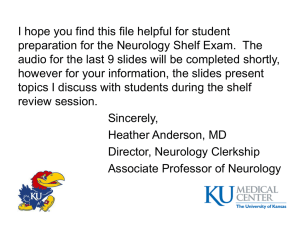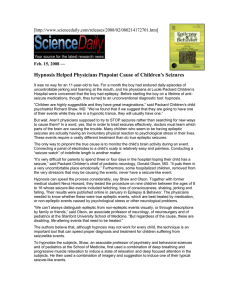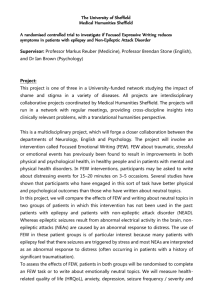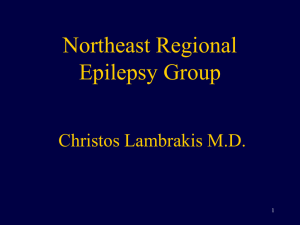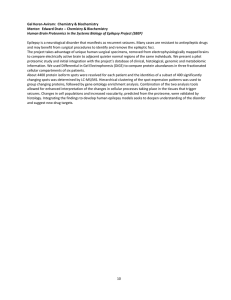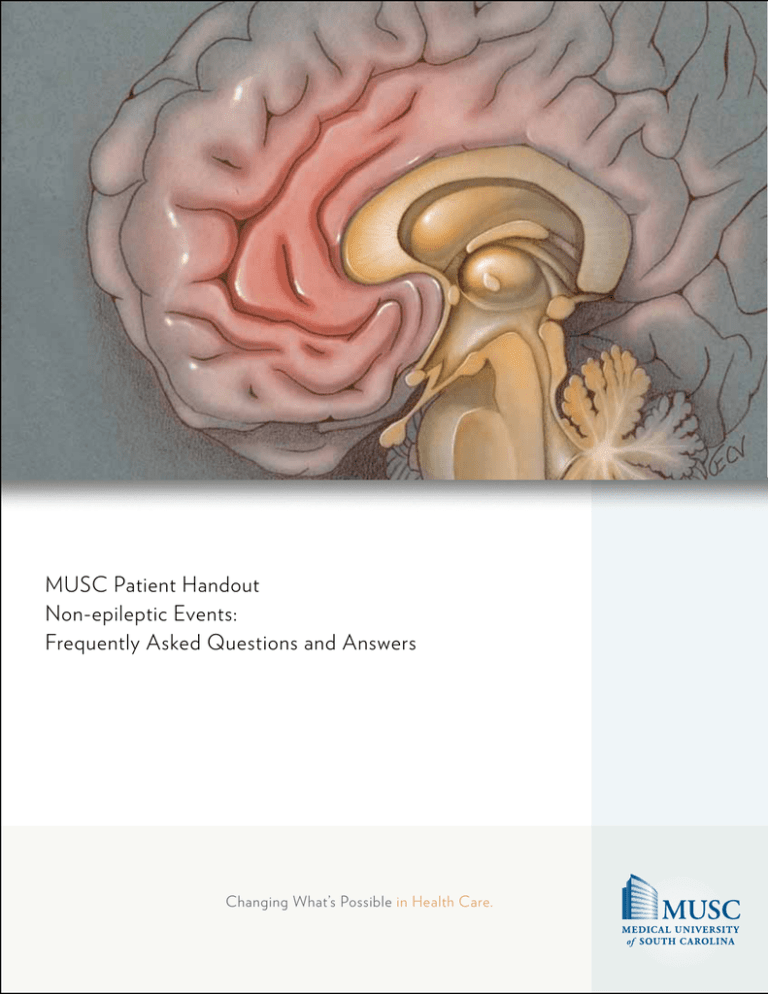
MUSC Patient Handout
Non-epileptic Events:
Frequently Asked Questions and Answers
Changing What’s Possible in Health Care.
As an academic medical center, MUSC offers benefits to the residents of South Carolina and beyond. The highly dedicated, professional
team focuses on providing the most effective therapies available while also striving to develop new therapies within a highly active basic and clinical
research program. These efforts are backed by facilities with the latest technology. This resource was developed to help patients understand more about
their condition, treatment, or procedure. This handout is meant to be used as a guide to supplement your healthcare providers instructions. It is not
intended to be used as a substitute for professional medical care. Only your physician can diagnose and treat a medical condition. Please consult your
physician if you have any questions.
Contact Information:
Comprehensive Epilepsy Center
96 Jonathan Lucas Street
Suite 307 - MSC 606
Charleston SC, 29425
Telephone: 843.792.3223
Fax: 843.792.8626
Webpage: www.muschealth.com/epilepsy
©2010 The Medical University of South Carolina, all rights reserved
What is a non-epileptic event?
A non-epileptic event happens when there are changes in body movements, sensations, and awareness.
Many researchers have found that non-epileptic events are associated with psychological stressors.
Non-epileptic events may be one type of physical response to emotional stress. Often, when we think
of physical responses to stress, we think of fainting, palpitations or increased heart rate, abdominal
pain, and sweating. Research suggests that non-epileptic events are another kind of physical response
to stressful conditions. They are not voluntary acts or something done on purpose. Movements during
these events vary from slight movement and staring to intense shaking similar to a generalized tonicclonic epileptic seizure. However, non-epileptic events differ because there is no abnormal electrical
activity on brain recordings.
How are non-epileptic events diagnosed?
There are very different patterns of body movement and brain electrical activity in non-epileptic events
and epileptic seizures. Video-EEG (electroencephalographic) monitoring is the gold standard method
for telling the difference between non-epileptic events and epileptic seizures by recording video of
body movements and recording electrical brain activity at the same time. The medical team also
closely evaluates a patient’s psychological, social, and medical histories using interviews and questionnaires. Patients are asked about traumatic events, anxiety, and depression, among other stressors. Both
the EEG and the patient’s history help the medical team to identify whether the patient is experiencing
non-epileptic events or epileptic seizures.
How common are non-epileptic events?
Non-epileptic events are common and it is estimated that nearly 30% of patients admitted to the hospital for seizure recording actually have non-epileptic events and not epileptic seizures. More women
are seen with non-epileptic events than men. Many patients are treated a number of years for epileptic
seizures before they are correctly diagnosed with non-epileptic events by the use of video-EEG monitoring. These patients often have a history of depression, anxiety, or traumatic events that may have
caused significant psychological stress. These events may be happening now or may have happened in
the recent or distant past.
PAGE
3
www.muschealth.com/epilepsy | 843.792.3223
What treatment options are available?
The good news is that these events do not require the use of antiepileptic medications, which can be
costly and have unwanted side effects. People with non-epileptic events can be reassured that their
brain is functioning without abnormal electrical seizure activity or brain damage. Studies have shown
that a type of therapy called cognitive-behavioral therapy (CBT) is beneficial in reducing the number
of non-epileptic events and improving coping skills. CBT is typically provided by a counselor, psychologist, or psychiatrist. CBT focuses on learning new skills in two areas: the way a person perceives the
world and adapting behaviors to promote healthy living. People who experience significant anxiety and
depression may also benefit from medication to treat these symptoms. Patients often also follow up
with a neurology practitioner.
Additional Resources:
https://www.epilepsyfoundation.org/programs/upload/Nonepileptic%20Seizures-2.doc
http://www.epilepsy.com/node/978904 (Educational Video)
http://hsc.usf.edu/com/epilepsy/pnesbrochure.pdf
Changing What’s Possible in Health Care.
Contact Information:
Comprehensive Epilepsy Center
96 Jonathan Lucas Street
Suite 307 - MSC 606
Charleston SC, 29425
Telephone: 843.792.3223
Fax: 843.792.8626
Webpage: www.muschealth.com/epilepsy

